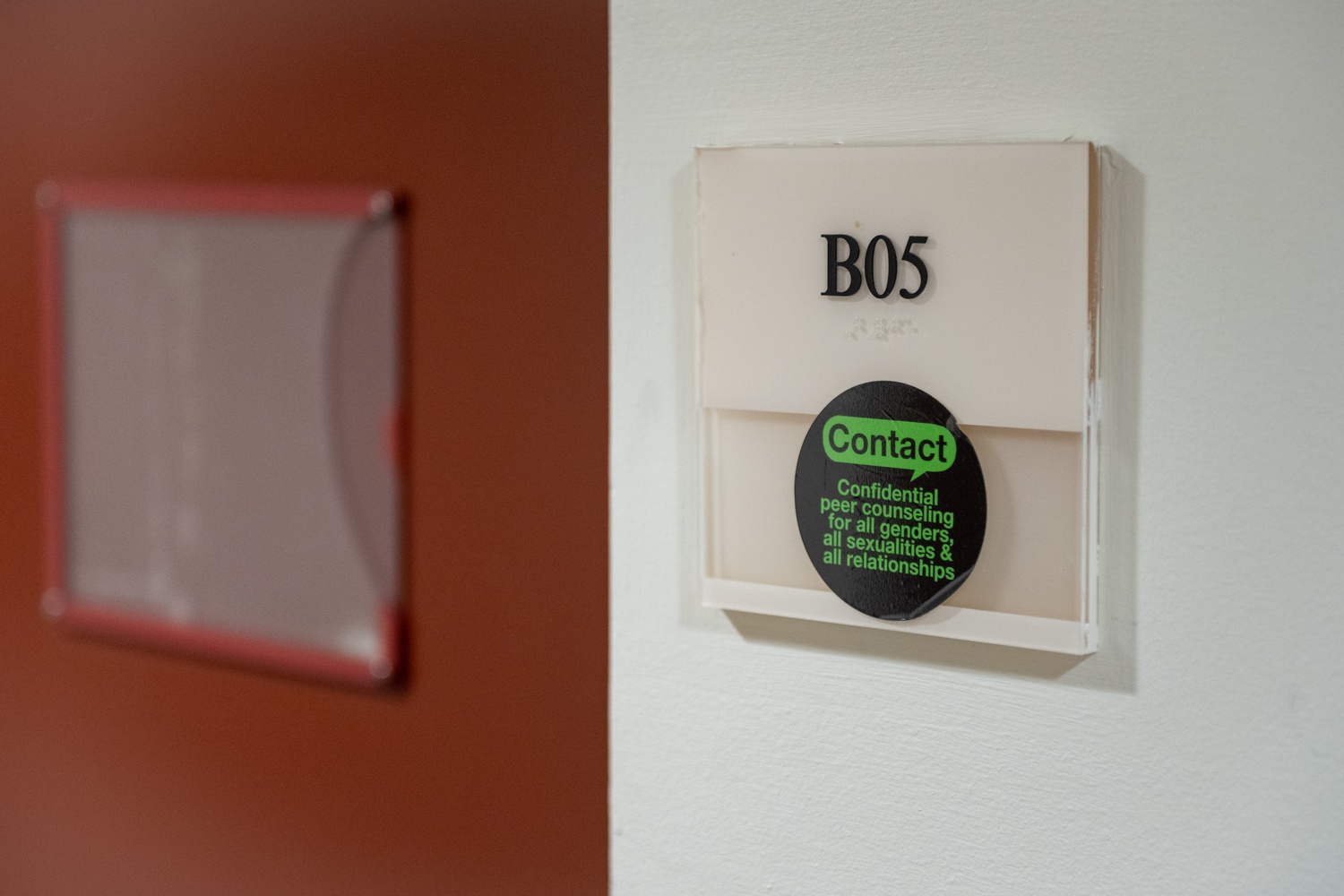
News
Summers Will Not Finish Semester of Teaching as Harvard Investigates Epstein Ties

News
Harvard College Students Report Favoring Divestment from Israel in HUA Survey

News
‘He Should Resign’: Harvard Undergrads Take Hard Line Against Summers Over Epstein Scandal

News
Harvard To Launch New Investigation Into Epstein’s Ties to Summers, Other University Affiliates

News
Harvard Students To Vote on Divestment From Israel in Inaugural HUA Election Survey
After Diversity Office Closures, Peer Counseling Services Face New Questions

Two months after Harvard College closed its three diversity offices, Harvard’s undergraduate peer counseling programs remain operational — but the shifting landscape of support resources has left counselors uncertain about where to direct students.
For many undergraduates, the College’s six undergraduate peer counseling groups serve as an accessible, confidential, and no-cost first line of support on a range of topics from relationships to eating disorders and sexual assault. Unlike professional therapists, peer counselors are non-directive, connecting students with resources rather than providing advice.
More than 130 students utilized one of the groups, which are licensed through Harvard’s Counseling and Mental Health Services office, across a two month period in 2022, according to a Harvard University Health Services spokesperson.
But after the College shuttered its Women’s Center, Office for BGLTQ Student Life, and Foundation for Intercultural and Race Relations in July, some student leaders of campus peer counseling groups worried over the summer that their programs would be next on the chopping block.
“We were worried that if those places were shuttered, there was a possibility that we could lose our license,” said Kit A. Terrey ’27 — a co-director of Contact, a group providing LGBTQ-specific support. “And if, for example, CAMHS were told that they had to shutter a little bit, if that would mean that we would lose our license to operate.”
But the order to close never came and Contact remains operational. HUHS spokesperson Tiffanie A. Green wrote on Monday that there have been “no changes” to the peer counseling program.
Though the group’s daily operations are consistent with prior years, Terrey said counselors are facing a new problem: having fewer options to choose from when referring students to resources.
In the past, Contact would typically advise students with LGBTQ-specific concerns — including coming out, transitioning, name and pronoun changes, or accommodations — to visit the Office for BGLTQ Student Life, according to Terrey.
“We’re in a place where if someone comes in with those concerns — which is totally understandable for the LGBTQ peer counseling space — we don’t really know what to tell them,” she said.
Chinasa N. Ohajekwe ’26 — a co-director of Response, which manages concerns related to sexual assault and harassment — said that the team updated their support material in anticipation of changes to Harvard’s diversity programming.
“We do refer people to a lot of the diversity offices, and that has been challenging, but that has only made us work so much harder to look for other resources for people,” she said.
Ohajekwe said the group relied less on the former centers than other peer counseling groups due to Response’s focus on counseling related to sexual misconduct.
“Not as many people are coming to us for problems specific with identity,“ she said. “That would 100 percent affect a lot of the other groups so much more — and it still affects us. But we are lucky that we still have offices.”
A student leader from Indigo declined to comment on the story. Student leaders from Eating Concerns Hotline and Outreach, Room 13, and Harvard Undergraduate Group Peer Therapy did not respond to a request for comment.
Under the new Harvard Foundation, which houses staff from the former diversity offices, students with identity-based concerns can still seek support — though administrators have indicated that the office will no longer match students with or allow them to seek out providers based on identity.
At a mandatory peer counselor training in August, a CAMHS official said they did not yet know the details of where students with LGBTQ concerns could be referred and promised to share information later, according to two attendees, who were granted anonymity because the training was confidential.
In a separate August training for leaders of pre-orientation programs, a Peer Advising Fellow told a College administrator that nearly all of her PAFees were concerned about what resources related to sex or race would be available for students, according to a recording of the session obtained by The Crimson.
Associate Dean for Student Engagement Jason R. Meier responded, “Words will be different. Office locations will be different. Programs will be different.” But he emphasized that all students “matter” and “belong” at Harvard.
“The spirit of these kinds of programs will continue through that regard, but the exact services will be shifting,” he said.
Still, the shortage of information has troubled peer counselors seeking to connect students with timely resources.
“It is just frustrating that we’re now in a place where there are some webpages that still say things like ‘coming soon,’ when students have been on campus for two weeks and maybe really needed services in those crucial first two weeks when they’re transitioning to a new life on campus,” Terrey said.
—Staff writer Samuel A. Church can be reached at samuel.church@thecrimson.com. Follow him on X @samuelachurch.
—Staff writer Cam N. Srivastava can be reached at cam.srivastava@thecrimson.com. Follow him on X @camsrivastava.
Want to keep up with breaking news? Subscribe to our email newsletter.
